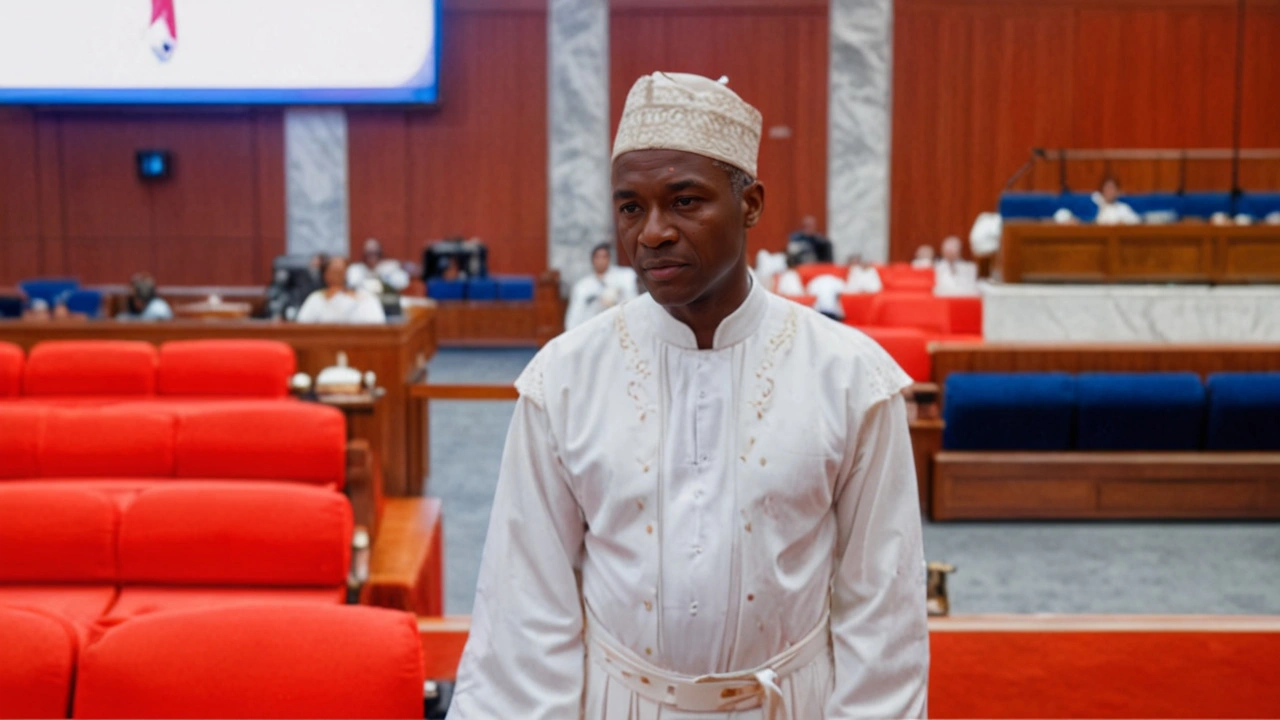Senate Ousts Ali Ndume as Chief Whip Amid Controversy and Criticisms
The Nigerian Senate has recently witnessed significant turbulence as it removed Senator Ali Ndume from his position as the Chief Whip. This shake-up comes shortly after Ndume’s pointed criticism of the Nigerian government. The Senate, following a directive written by the National Chairman, Umar Ganduje, and National Secretary, Senator Bashir Ajibola, moved swiftly to replace him with Senator Tahir Monguno.
Reasons Behind Ndume's Removal
The directive to remove Ndume was unequivocally supported through voice votes, led by the Senate President, Godswill Akpabio. The endorsement was loud and clear, cementing Monguno's new role as Chief Whip. But to understand the depth of this political maneuver, one must delve into the underlying criticisms that precipitated Ndume’s ousting. His recent denunciations of the Nigerian government, wherein he painted a picture of a government detached from its cabinet members, seemed to have struck a raw nerve. According to Ndume, the President had become inaccessible to many key figures including ministers and lawmakers. His stark assessment labeled the current government as a 'Kakistocracy' – ostensibly controlled by the most unscrupulous and unqualified individuals.
Accusations and Allegations
Ndume did not stop there; he also claimed that influential plutocrats had circled the President, effectively sidelining other officials. Such criticisms from Ndume, a prominent figure within the Senate, spotlighted growing discontents and potentially insurmountable rifts within the Senate's ranks. The repercussions were swift and decisive. Not only was Ndume stripped of his Chief Whip position, but his role as the Vice Chairman of the Senate Committee on Appropriations was also rescinded.
Political Climate and Power Struggles
This recent shakeup signifies more than just a change in leadership roles. It underscores an escalating power struggle within the Nigerian Senate and reveals the extent to which dissent and criticism are managed within political circles. The swiftness of the Senate's actions and the resounding approval from the APC senators illustrate the zero-tolerance attitude towards internal criticism and the lengths the leadership will go to maintain a united front.
Ali Ndume’s subsequent removal from his Vice Chair position is particularly noteworthy. The Appropriations Committee plays a fundamental role in the allocation and distribution of funds within the government, making his demotion a significant shift in the control and oversight of national finances. This decision marks an evident attempt to consolidate power and reduce the influence of those who dare to challenge or question the status quo.
The emergence of Senator Tahir Monguno as the new Chief Whip represents yet another layer to this intricate political scenario. Monguno's reputation and alliances will undoubtedly shape his strategies and approaches in his new role. With a political landscape as dynamic and unpredictable as Nigeria's, Monguno's tenure is expected to bring both challenges and opportunities as he navigates his responsibilities amidst keen scrutiny from both allies and adversaries alike.

The Larger Implications
The events leading to Ndume's removal, his public criticisms, and the swift response from the Senate reflect broader themes within Nigerian politics. Dissent and open critique of leadership, even by senior figures, can lead to quick and tangible repercussions. This incident serves as a stark reminder of the lengths to which political entities will go to preserve control and unity within their ranks, often at the expense of open dialogue and transparency.
For observers and political analysts, this saga also offers a critical lens through which the stability and future direction of the Nigerian Senate can be evaluated. Will this crackdown on criticism lead to a more unified and coherent approach to governance? Or will it stifle necessary dissent and create an environment of fear and compliance? These are questions that merit close attention as the political scene continues to evolve.
Conclusion
In the realm of Nigerian politics, the removal of Senator Ali Ndume as the Chief Whip marks a significant episode that underscores the delicate balance and inherent tensions within the Senate. Ndume's outspoken nature and his subsequent dismissal highlight the thin line between governance and control, and the complexities that define the interactions between lawmakers and the executive. As Senator Tahir Monguno steps into his new role, the eyes of the nation and the political world will be keenly observing the unfolding dynamics and the impacts of this leadership change.
